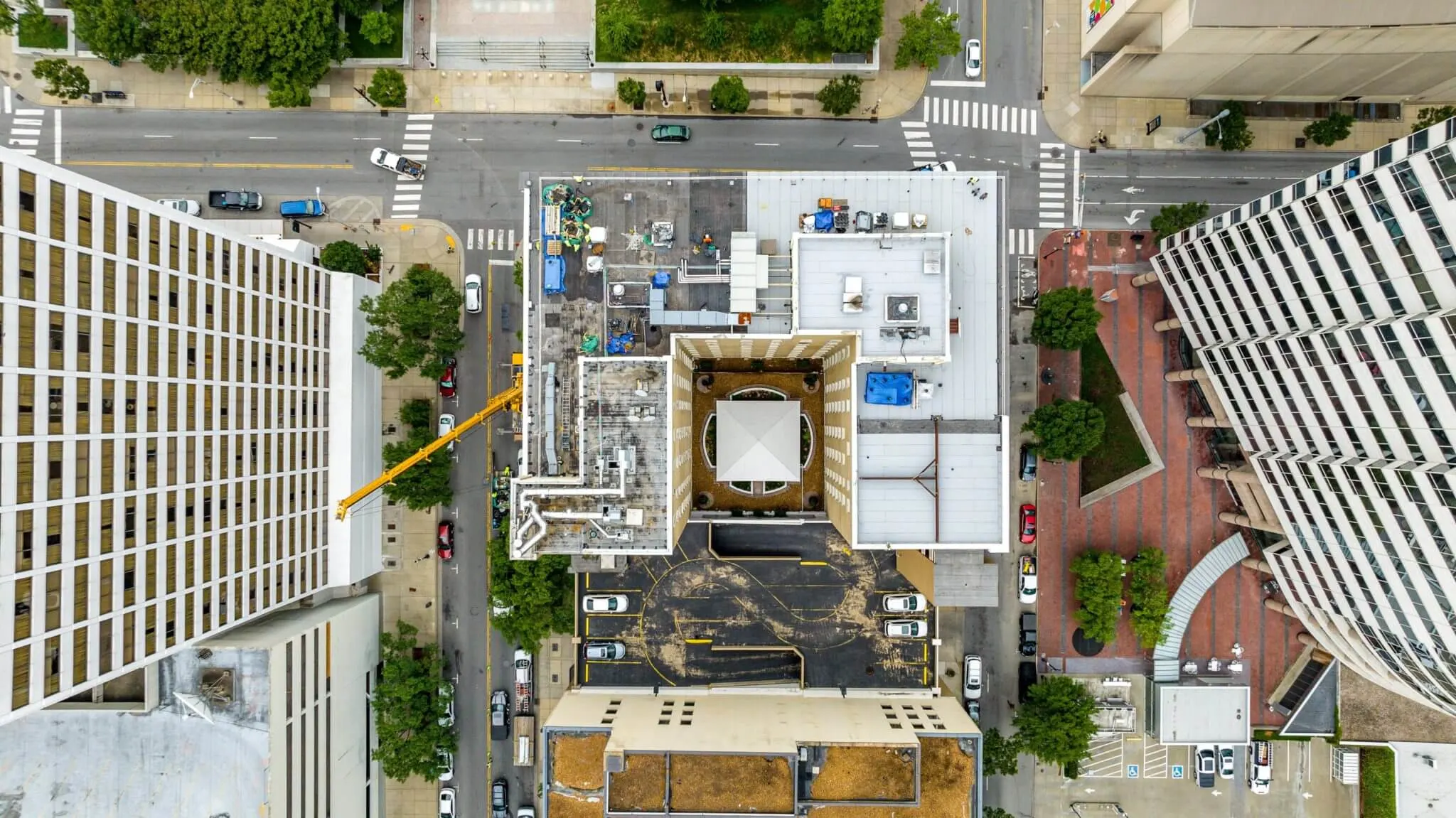Installing a new HVAC unit on a commercial building isn’t as simple as just placing it on the roof. There are several key considerations that property managers and building owners need to think through when it comes to the way a commercial HVAC unit impacts the roof itself.
Unfortunately, this part of the process is often overlooked until it becomes a problem. Issues like improper roof curbs, misaligned scheduling between contractors, or unexpected roof damage can all add delays and costs to a project.
At Maxwell Roofing, we have decades of experience supporting HVAC installations on nearly every type of commercial building. In this guide, we highlight some of the essential things you should consider to ensure a smooth, cost-effective installation.
The Most Essential Element for HVAC Installation: Communication
Collaboration between the roofing and HVAC contractors is essential for successful HVAC installation. Early communication is another foundational element for creating a clear understanding of the project scope, timelines, and budget. This will ensure the roofing crew can safely and properly flash the agreed-upon roof curbs per day to prevent water leaks. Otherwise, misalignment could lead to delays, cost overruns, and potential damage to the roof. That’s why we emphasize upfront planning and collaboration with a roofing contractor.
Having an in-house metal fabrication department—like we do at Maxwell Roofing—also allows for more flexibility and efficiency in designing and installing roof curbs, making the process smoother for everyone involved.
Other Key Factors for Installing Commercial HVAC Units with Roof Curbs
When installing a rooftop HVAC unit, these five factors can make or break the success of the project.
1. Schedule Synchronization
HVAC installations require cutting into the roof, which temporarily exposes the building to potential water damage. This makes it critical for both the HVAC and roofing teams to align their schedules so that no more penetrations are made than can be properly sealed in a single day. Proper planning prevents unnecessary risks and ensures a watertight roof at the end of each workday.
2. Roof Composition Matters
Not all commercial roofs are the same. Before installation begins, the roofing contractor should have full knowledge of the roof composition, including the deck type and insulation. This ensures that the right materials and methods are used to maintain the roof’s integrity.
Additionally, if the roof is under warranty, using approved materials is essential to keep that warranty valid.
3. Drainage Considerations
Every rooftop HVAC unit alters the existing layout of the roof, which can impact drainage. Without proper planning, this can lead to ponding water and long-term roof damage. It’s best to consult with a design professional during the budgeting phase to evaluate how the new unit placement will affect water flow and drainage patterns.
4. Roof Age and Condition
If the roof is nearing the end of its lifespan, installing a new HVAC unit may not be the best choice without also considering a roof replacement. Placing new equipment on an aging roof could lead to expensive repairs down the line. Evaluating the roof’s condition before installation can help property owners decide if a full roof replacement is a smarter investment.
5. Post-Installation Inspection
After the HVAC installation is complete, a roofing contractor should perform a post-installation inspection to check for any punctures, tears, or other damage to the roofing membrane. Even small issues can lead to leaks if left unaddressed. A final inspection ensures that the roof remains in top condition after the HVAC work is done.
Partner with Maxwell Roofing for Seamless HVAC Installations
HVAC installations require more than just setting a unit on the roof—they demand careful planning, collaboration, and attention to detail. By working with an experienced roofing contractor from the beginning, property managers and HVAC companies can avoid costly mistakes and ensure a smooth installation process.
If you’re planning a commercial HVAC installation and need expert roofing support, Maxwell Roofing is here to help. Contact our team today to learn more about our in-house metal fabrication services and how we can assist with your project.

